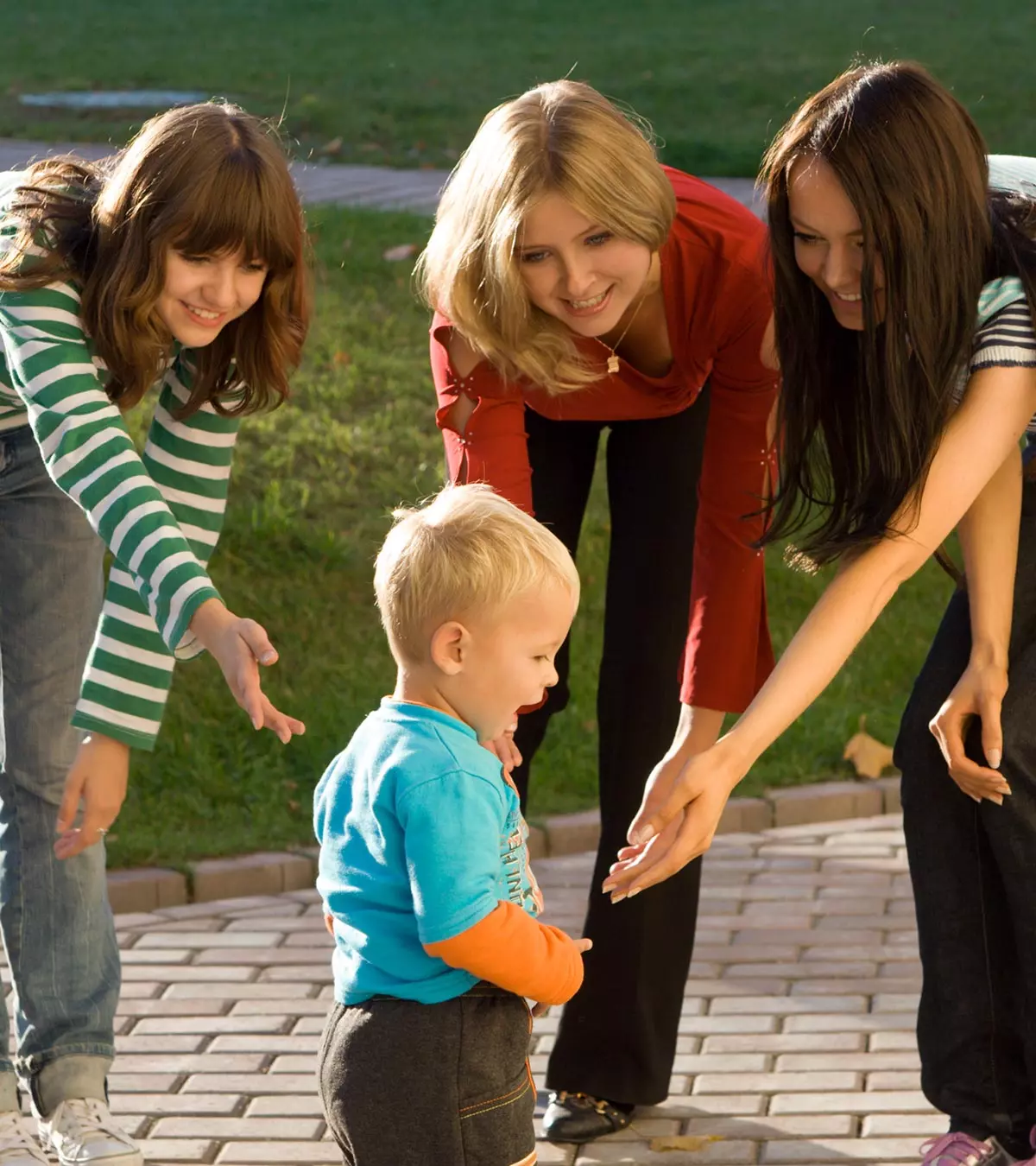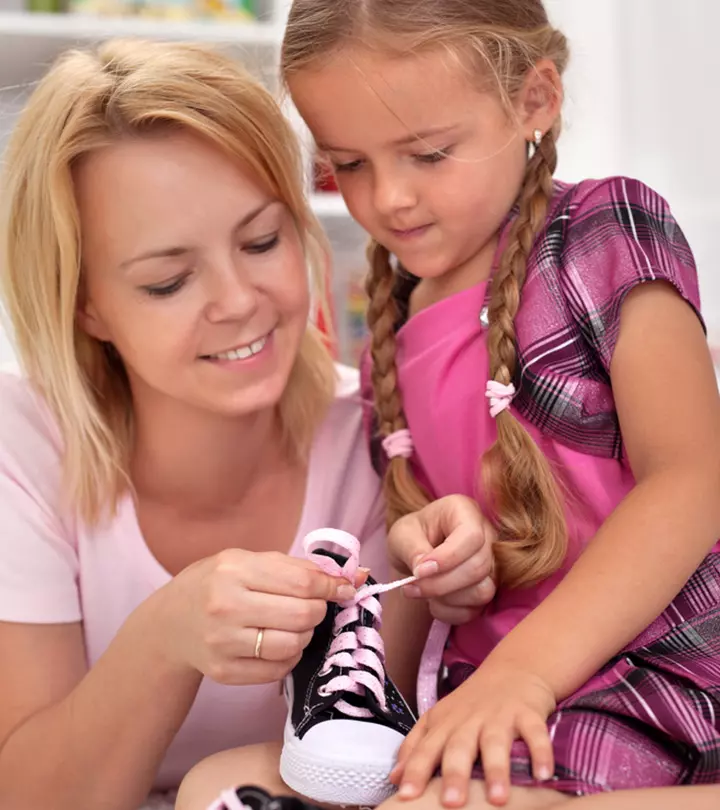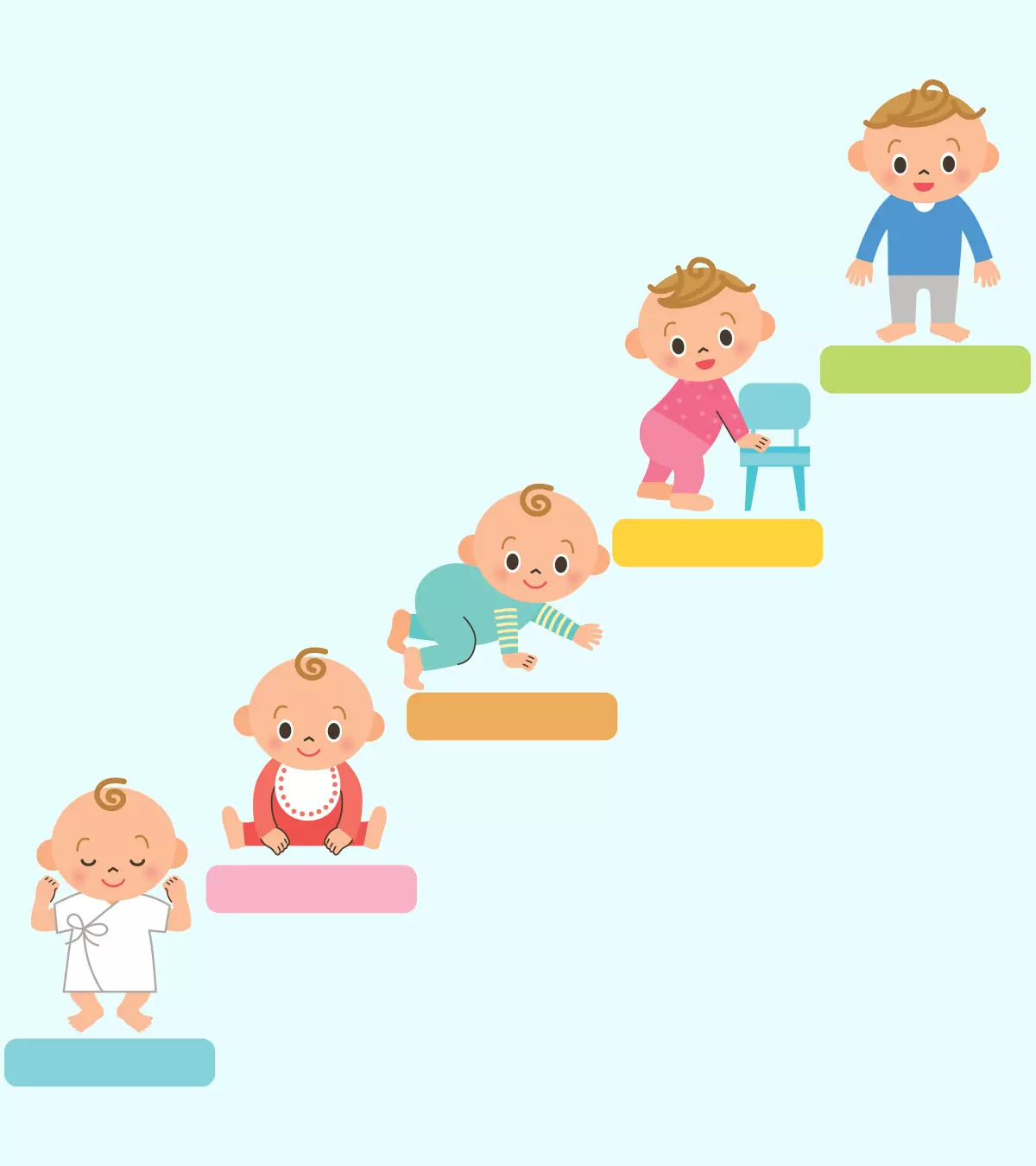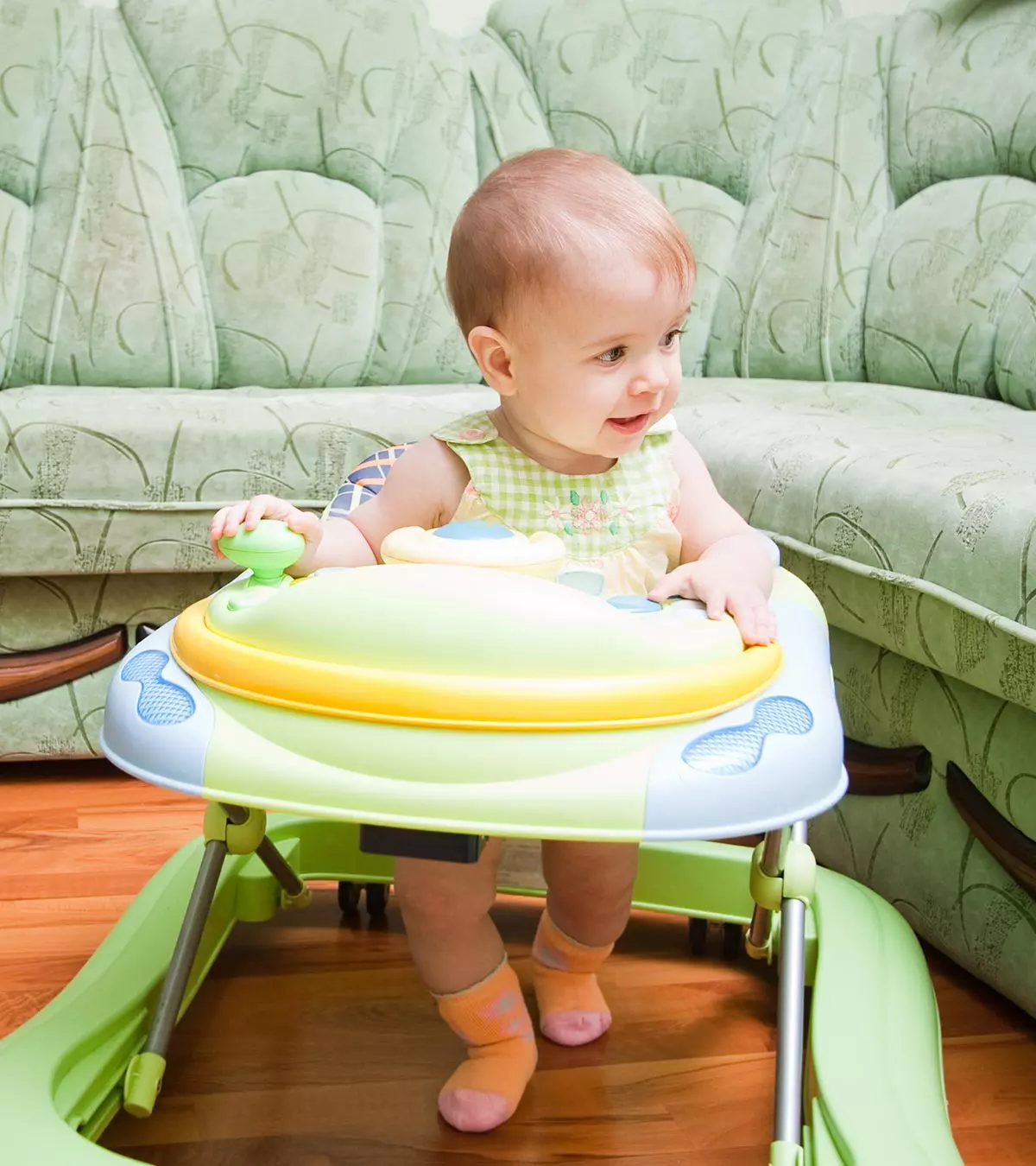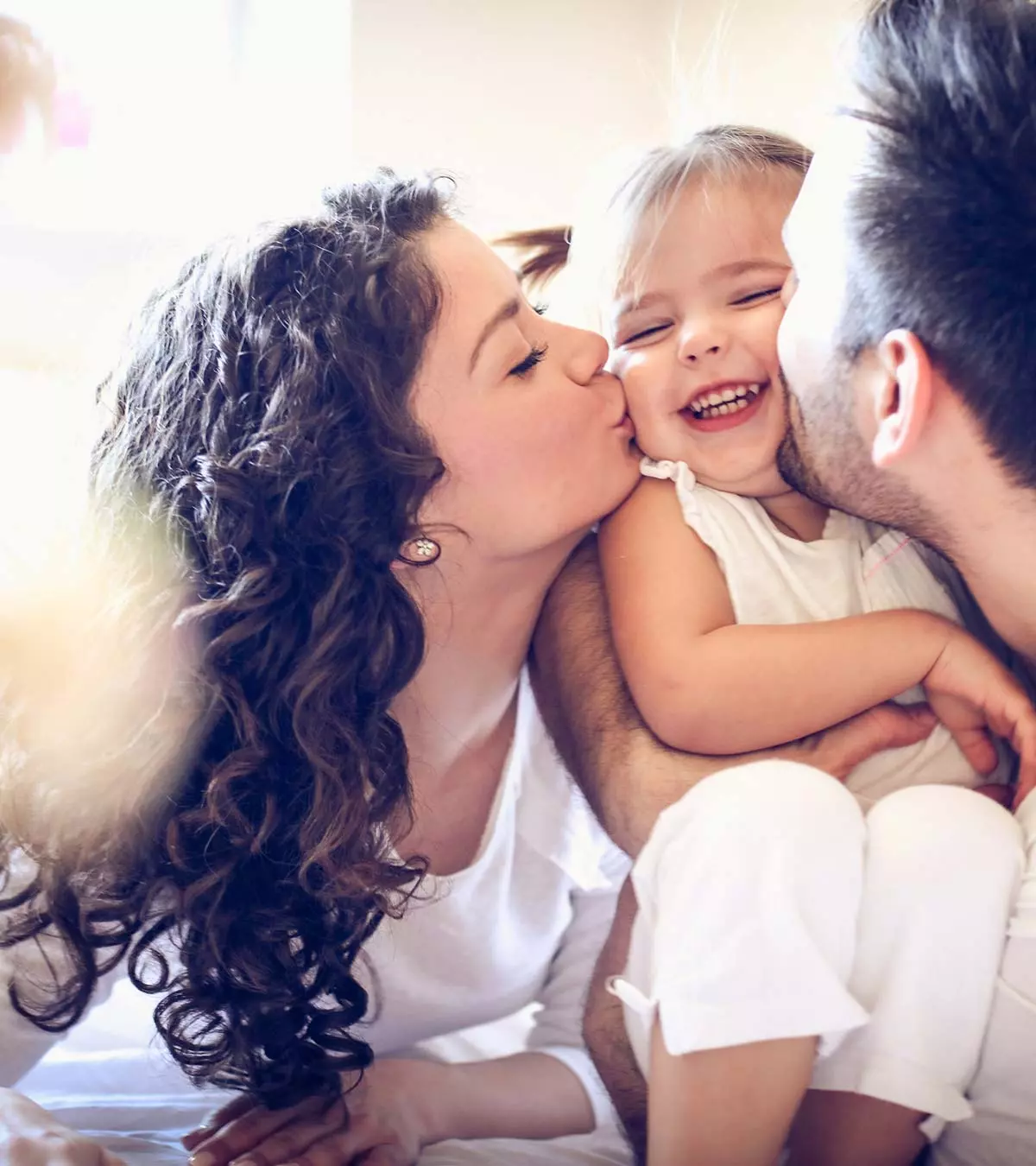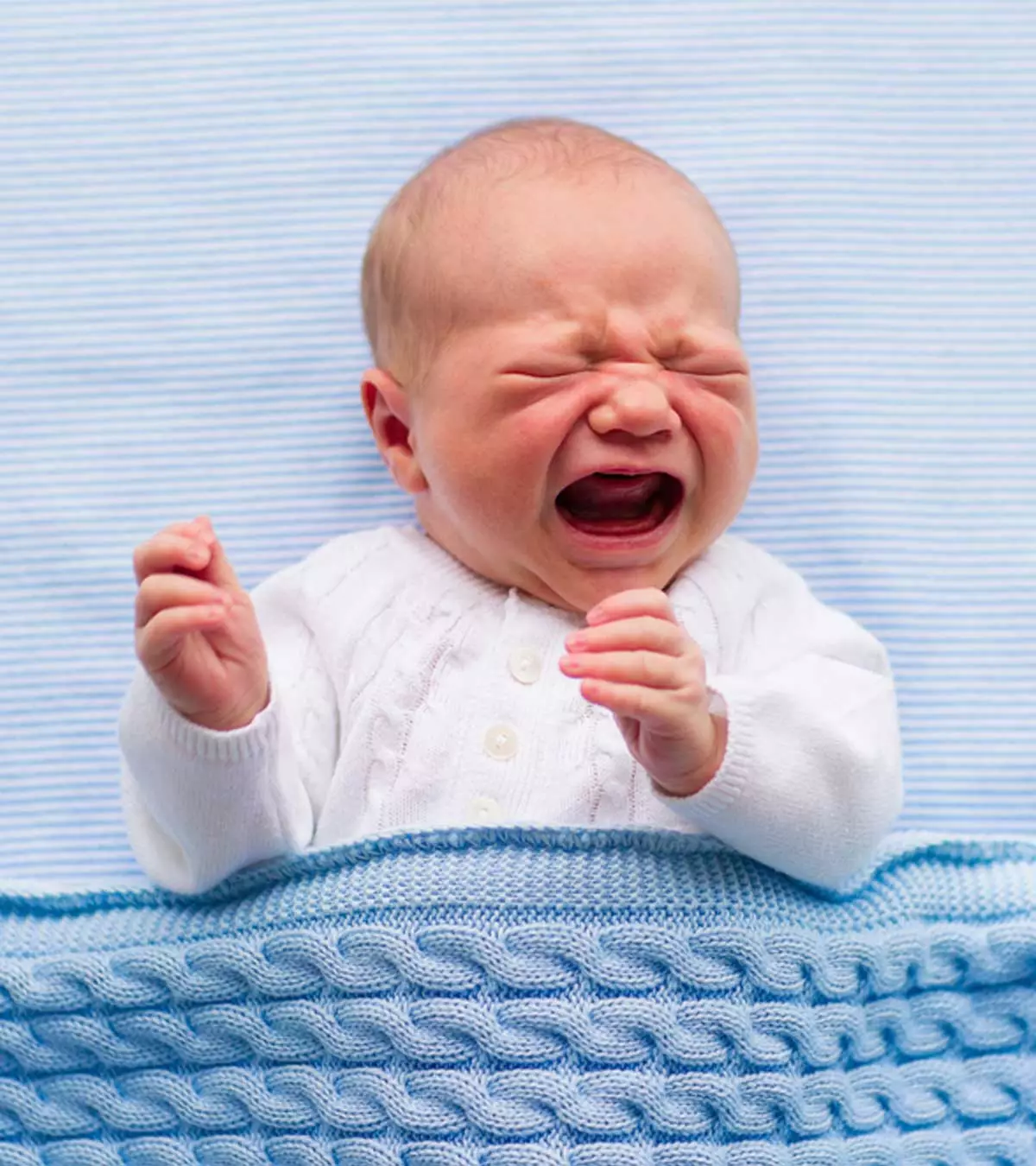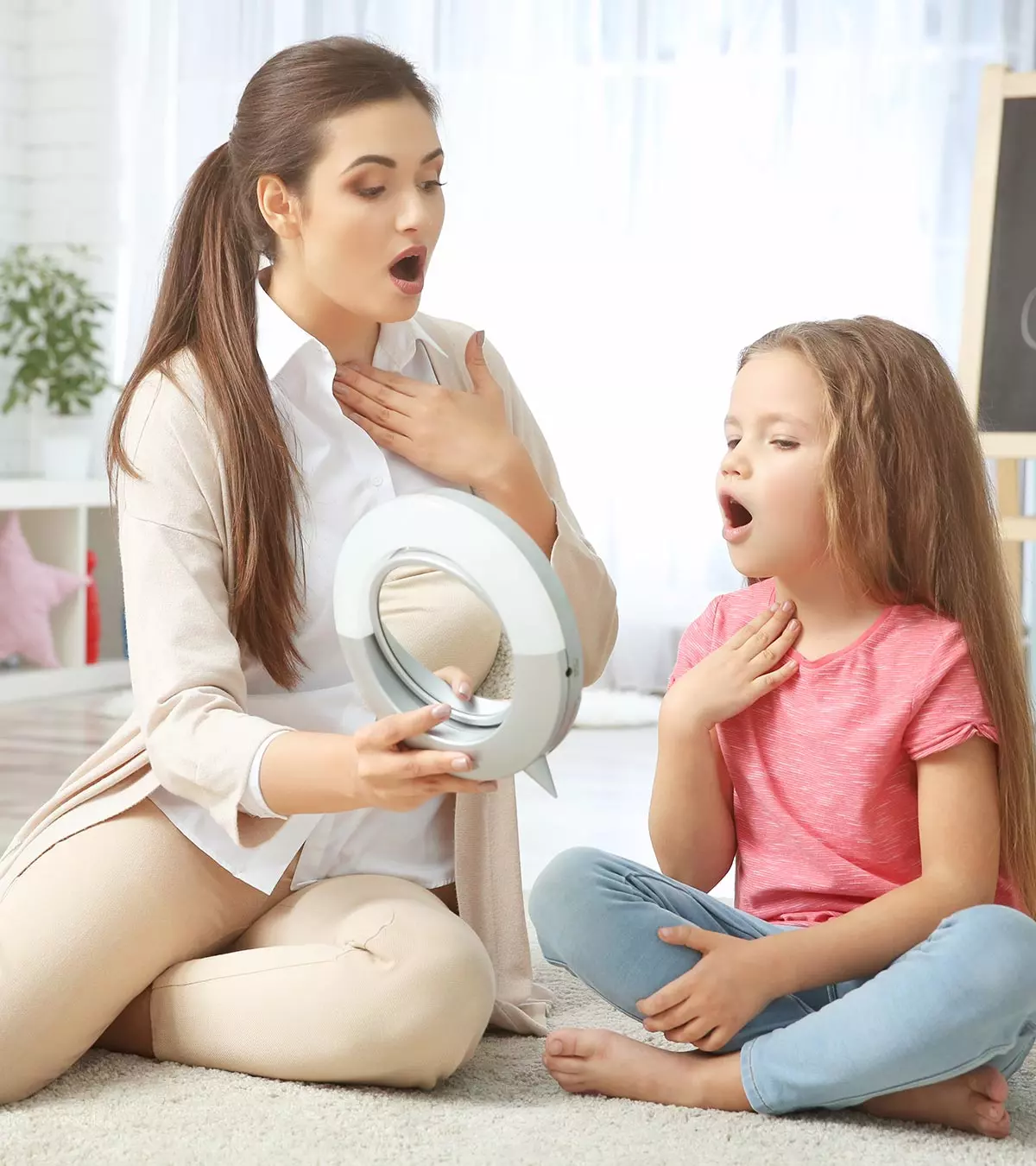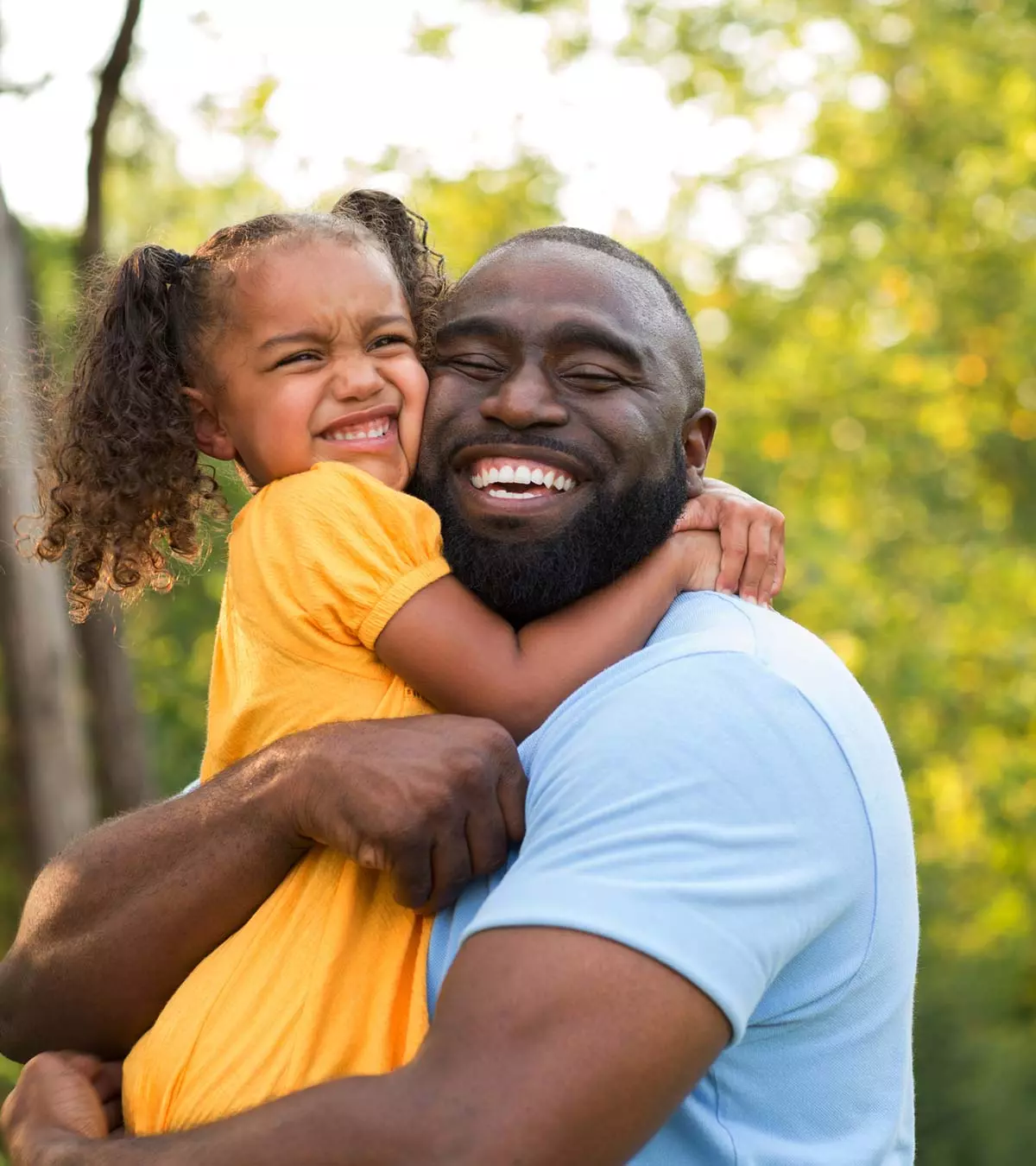
Image: iStock
“Hugs can do great amounts of good — especially for children.” —Princess Diana

A hug holds a secret weapon. It has the power to calm a person and is an excellent means to show love and affection.
Several studies have proven that children showered with tender forms of affection or appreciation, such as a hug, tend to have high emotional intelligence and an optimistic attitude towards life. In short, hugs are essential for a child’s physical and mental health, as well as their overall well-being.
If you plan to give your child an inexpensive and well-thought gift for life, just hug them when they need it. As easy as it may seem, this act of affection will determine how content they are. Here’s more on the benefits of hugging kids.
Key Pointers
- Affectionate hugging can release happy hormones and strengthen the parent-child bond.
- It can stimulate touch sensation and assist proper brain development.
- Hugging can take away stress and reduce tantrums in children.
- However, children should not be forced to hug if they are not comfortable.
12 Benefits Of Hugging Kids
You might think that hugging is just another form of showing affection, but you’ll be surprised to know that it offers many benefits that you might not have thought of. Read on as we tell you the many proven benefits of hugging for you and your child.
1. Hugging improves the parent-child bond
A hug from a person we like helps release the “feel-good” hormones, namely dopamine, serotonin, and oxytocin (1). The release of these neurotransmitters makes one happy and relaxed and improves mood (2) (3). This general feeling of happiness and joy would make your child want to hug you more, thereby strengthening your bond. Also, hugging helps your child recognize your smell, which again helps you bring them closer.
Ally, a mother of five, shares a story about how a simple hug can mend the relationship between a parent and child. She describes how she snapped at her daughter after being overwhelmed by stress and noise but then immediately regretted her words. She decided to approach her daughter with affection instead of anger. She says, “As I walked into her room, I did not say anything, I just went into her bed and laid beside her and held her. It is incredible how those five minutes of affection renewed my spirit. I thought I was doing it for my daughter, but instead, I felt my own stress melt away. As I left, I said, I love you; she said, Mom, I love you too.
“When I hugged my daughter in bed that night, she forgot about my harshness and instead saw me as a loving mother (i).”
2. Hugging increases the levels of oxytocin
The levels of oxytocin, also known as the “cuddle hormone,” increases during hugging. This hormone plays a major role in mother-child bonding. And what’s more, it’s also proven to reduce inflammation, improve wound healing, and lessen cravings (4) (5) (6). So, the next time your child gets hurt, give them a tight hug and relieve their pain.
3. Hugging is a heart-saver
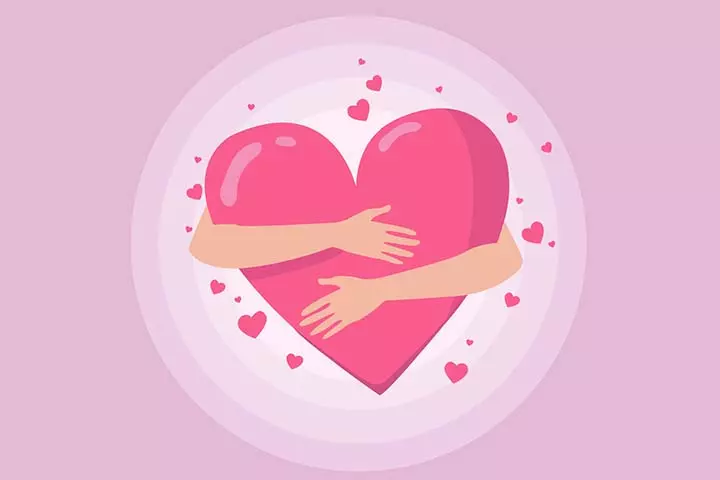
The calming effect of oxytocin brings down the heart rate and blood pressure to a healthy level. This means that giving your child a warm hug is an ideal way to calm them down when they’re upset. So, now, you know a secret to a healthy heart for you and your child (7).
4. Hugging makes one smarter
Sensory touch during the initial years of life helps in healthier brain development among children. It is because this positive touch is the first sensory stimulation in infants. When you hug your child, the skin-to-skin contact stimulates their brain and helps them experience the world around them (8).
Studies conducted by child psychiatrists at the Washington University in St. Louis suggest that children nurtured early in life by their mothers have a larger hippocampus than those who were not nurtured well. The hippocampus is a brain structure that plays a crucial role in improving memory, learning, and stress response (9). With childhood being the age of rapid brain development, an occasional nurturing hug would do wonders for your child’s growth and development.
5. Hugging boosts confidence
Hugging implies a loving and caring atmosphere within the family, especially for the children. This ultimately helps them develop an optimistic outlook towards life and improves their confidence and self-worth.
6. Hugging is a stress buster
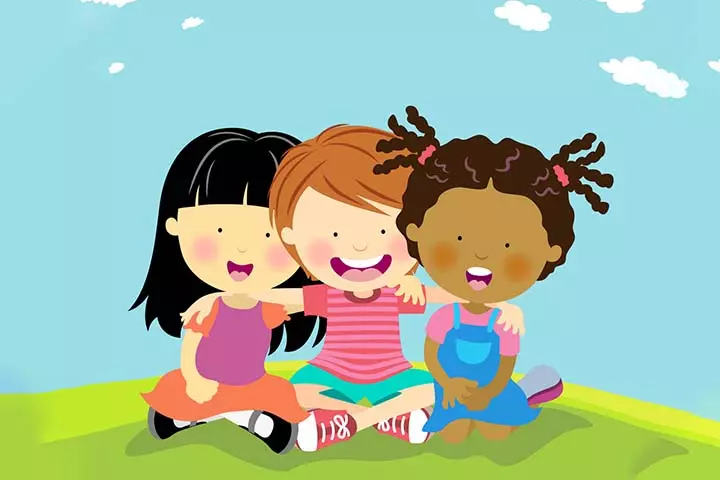
High levels of cortisol, a stress hormone, can lead to anxiety and depression. On hugging, the oxytocin released balances the cortisol levels in your body and produces a calming effect, thus reducing anxiety and stress. So, now you know what you should do when your child is in an uncomfortable situation (10).
7. Hugging helps reduce tantrums
If your child has been throwing temper tantrums lately, it may mean that they’re dealing with some inexpressible emotions on the inside. Hugging is a powerful form of communication that helps to calm children down and aids in emotional regulation.
Life gets tough sometimes, and even we adults tend to lose control over our emotions in uncontrolled situations. It is even more difficult for children to control theirs. When you hug them during their emotional turmoil, it will help them calm down and gain better control over their emotions.
8. Hugging increases resilience
High amounts of adrenaline and cortisol are released into the bloodstream when one is highly stressed. According to the American Psychological Association, children are amateurs in coping with stress, which only lets tension bundle up (11). This could lead to anxiety and depression. Hugs, on the other hand, release oxytocin, which subdues cortisol levels and increases resilience in children (12).
9. Hugging teaches empathy
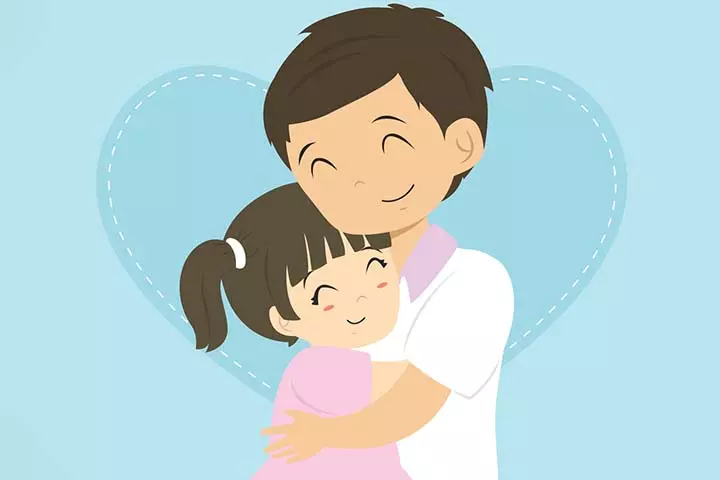
The contact made during hugging acts as an emotional bridge between you and your child. By giving them nourishing hugs frequently, you teach them to recognize the feelings of others, which helps enhance emotional development in children. A hug helps and supports your child’s emotional connection with you, which serves as the foundation for empathy and love.
10. Hugging is good for health
A hug is not only good for one’s mind but also good for one’s physical health. Hugging is an immune booster. The slight pressure caused on the chest while hugging helps stimulate the thymus gland (13). This gland regulates the production of white blood cells, keeping infections at bay.
 Did you know?
Did you know?11. Hugging helps in physical growth
Hugging your child is nourishing and required for their proper physical growth and development (14). The physical touch during hugging stimulates the senses, which in turn, aids in proper physical growth.
Studies have shown that physical touch in the form of kangaroo care helps boost growth in the case of incubated and low-birthweight babies and that children deprived of this physical touch do not reach their potential growth state (15).
12. Hugging makes one happy
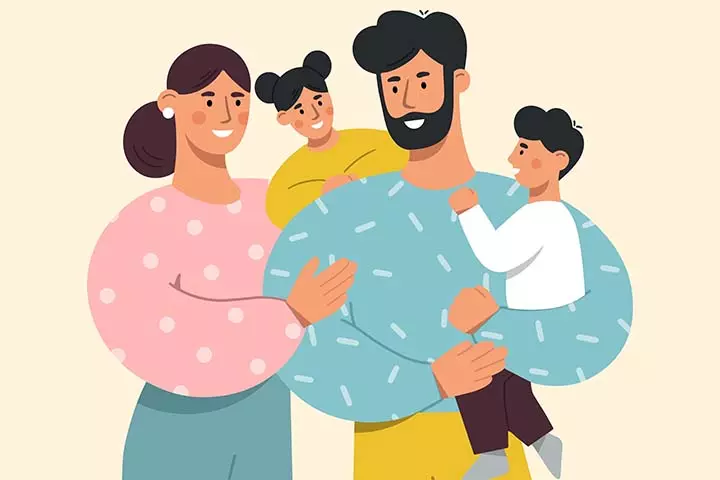
All the hormones that are released during hugging cheer both parties up. A hug from a loved one is as relaxing as any meditative practice. Hugging provides warm comfort and security. The sense of trust and reassurance that this simple act brings provides relaxation and makes you feel that all is well in this world. That is reason enough to hug your child.
Effects Of Not Being Hugged As A Child
Hugs represent affection and care in most cultures. If you belong to a culture where hugging is a common practice and your child is not hugged enough, they may face the following struggles in the future (8) (16).
- They may have trouble identifying emotions. Hugging improves empathy. Children brought up in a hug-free home may struggle to identify their own feelings and those of others.
- They may have trouble forming relationships later in life.
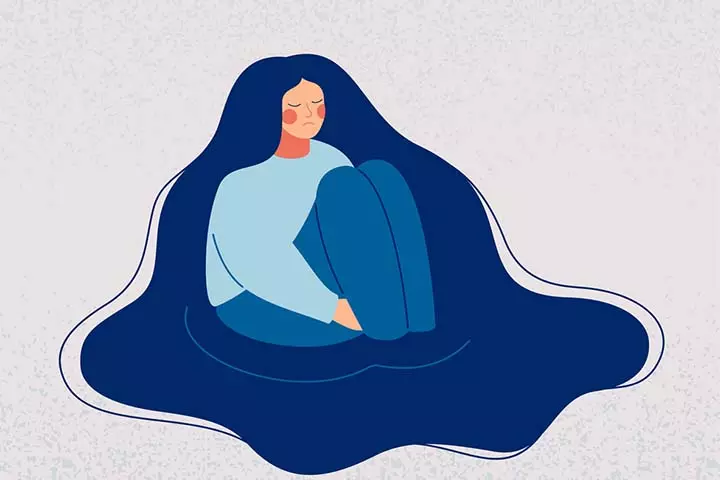
- They may show reduced self-esteem in the future.
- Hugs mean trust. Hence, children who are not hugged when wanted may struggle with trust issues. They may take time to believe someone.
- They may question themselves frequently and fight to accept their weaknesses.
 Point to consider
Point to considerWhy You Should Not Force Your Child To Give Hugs
When children are forced to hug someone despite their reluctance and beyond their comfort level, it carries the message that they should subdue their will to somebody’s wishes, even if it means sacrificing their boundaries and respect. It may give them the impression that the authority on themselves and their body lies in somebody else’s hand. Your child may even be compelled to obey the rules of a predator in case they meet one. This is least empowering, as it does not promote a sense of safety, and is not a message you would want to convey to a child.
Frequently Asked Questions
1. How many hugs a day does a child need?
A twenty-second hug is believed to make you feel better (18). However, it depends on you and your child. Furthermore, some research findings suggest that around eight to twelve daily hugs could enhance mood and psychological development in people suffering from depression (19). Try engaging in a daily hug challenge with your child to make the experience fun.
2. Can I hug my child too much as they grow older?
The way you show physical affection by hugging may vary as your child ages. Also, older children might not need physical attention and hugs like babies or toddlers. Therefore, your child could resist hugging as they grow older and may also feel socially embarrassed.
3. Why do kids like tight hugs?
Children often enjoy tight hugs because they provide a sense of security, comfort, and physical closeness, fostering a deep emotional connection and reassurance. The warmth and affection of a tight hug will create a feeling of love and safety, making them appealing to children.
4. What are the best ways to hug a child?
When hugging a child, ensure the embrace is gentle, warm, and supportive, allowing them to feel secure and loved. Respect their personal space and comfort level, adapting the hug to their age and preferences.
5. How do cultural and societal norms impact hugging kids?
Cultural and societal norms influence the acceptability and frequency of hugging children, with some cultures encouraging more physical affection while others may have more reserved or specific norms around hugging.
Hugging is therapeutic for both adults and children alike, serving as a positive form of self-expression and attachment. Hugging your child can help you feel safe, loved, protected, and happy. It improves your bond with your child and helps kids feel better when hurt. Most people know the benefits of skin-to-skin contact between a newborn and a mother. The benefits are not limited only to infancy. When a mother hugs, it can improve the overall growth and development of the child. Remember, hugs are not limited to babies and young kids. A hug desired by both the mother and the child is beneficial at all stages in life.
Infographic: Saying “NO” To Unwanted Hugs And Kisses
Young children aren’t aware of consent. However, parents can teach children about consent and its usage. It will help children know that their opinion matters. Besides, it will help them recognize when to say “no” to an unwanted kiss or hug. Our infographic shares simple yet effective tips that parents can try. Additionally, we share ways a child can decline a hug respectfully.
Some thing wrong with infographic shortcode. please verify shortcode syntax
Some thing wrong with illustration image shortcode. please verify shortcode syntax
Here are some remarkable ways in which hugs contribute to the well-being and happiness of children! Learn about the positive health benefits of hugs for kids.
Personal Experience: Source
MomJunction articles include first-hand experiences to provide you with better insights through real-life narratives. Here are the sources of personal accounts referenced in this article.
i. The joyous power of touch;WordpressReferences
1. Cuddle and hug your way for better health;ntermountain Healthcare.
2. E. Baixauli;Happiness: Role of Dopamine and Serotonin on Mood and Negative Emotions;Emergency Medicine (2017).
3. D. Dfarhud, M. MALMIR, and M. Khanahmadi;Happiness & Health: The Biological Factors – systematic review article;Iranian Journal of Public Health (2014).
4. 4 Facts About Hugs: Why You Should Embrace The Embrace;Dignity Health
5. K. U. Moberg, L. Handlin, and M. Petersso3;Self-soothing behaviors with particular reference to oxytocin release induced by non-noxious sensory stimulation;Frontiers in Psychology (2014).
6. L. W. Ayers et al.;Oxytocin Reduces Background Anxiety in a Fear-Potentiated Startle Paradigm: Peripheral vs Central Administration;Neuropsychopharmacology (2011).
7. J. Gutkowska, M. Jankowski, and J. Antunes-Rodrigues;The role of oxytocin in cardiovascular regulation;Brazilian Journal of Medical and Biological Research (2014).
8. E. L. Ardiel and C.H. Rankin;The importance of touch in development;Paediatrics Child Health (2010).
9. Mom’s love good for child’s brain;Washington University in St. Louis
10. Can You Kiss and Hug Your Way to Better Health? Research Says Yes;The Trustees of the University of Pennsylvania
11. The kids aren’t all right; American Psychological Association.
12. Y. Li, A.L. Hassett, and J.S. Seng; Exploring the mutual regulation between oxytocin and cortisol as a marker of resilience HHS Author Manuscripts (2018).
13. Can a hug have therapeutic benefits?;Concorde Career Colleges
14. The Science Behind Hugging Your Kids—5 Benefits for You and Your Child. EXCHANGE FAMILY CENTER
15. A. Bera et al.;Effect of kangaroo mother care on growth and development of low birthweight babies up to 12 months of age: a controlled clinical trial;Acta Paediatrica (2014).
16. Mariana von Mohr, Louise P. Kirsch, and Aikaterini Fotopoulou;The soothing function of touch: affective touch reduces feelings of social exclusion;Springer Nature (2017).
17. S. Yoshida et al.;Infants Show Physiological Responses Specific to Parental Hugs;iScience (2025).
18. Embrace Hugs For Your Health!; Golden Valley Health Center.
19. A Mooney; (1995); Four hugs a day using therapeutic touch.
Community Experiences
Join the conversation and become a part of our nurturing community! Share your stories, experiences, and insights to connect with fellow parents.
Read full bio of Dr. Sadhvi Mythili
Read full bio of Apoorva K
Read full bio of Harshita Makvana
Read full bio of Vidya Tadapatri






